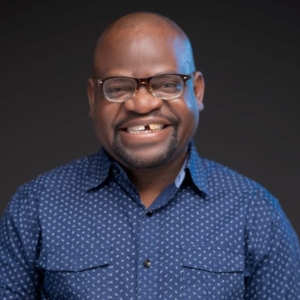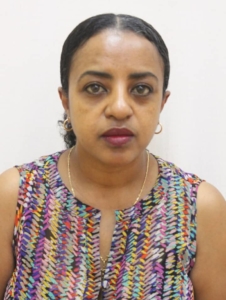
Dalitso Baloyi
Last Mile Health is working with Malawi’s Ministry of Health to implement a bold new National Community Health Strategy to ensure the program delivers essential primary health services to every person – no matter where they live.
This work is led by Dalitso Baloyi, our Malawi Country Director, and Kidest Lulu Hagos, our Malawi Program Director, who recently interviewed each other to discuss their motivations for joining the Last Mile Health team, their passion for community health, and the potential of our partnership with the Malawi Ministry of Health. This conversation has been edited for clarity and length.
Dalitso: Kidest, can you introduce yourself? I’d like to hear about your experience and background, and what your current role is at LMH.

Kidest Lulu Hagos
Kidest: I am the Program Director at Last Mile Health Malawi and have been with Last Mile Health for about three months now. I am a medical doctor, and my career has spanned public health, clinical practice, teaching, and program design and management. I’m also a passionate gender equality and sexual and reproductive health advocate.
Kidest: I’ll ask you the same question – what’s your background and current role?
Dalitso: I am the Country Director for the Malawi program. I have worked in several international organizations working across health, education, and agriculture. Previously I served as Country Director for Winrock International for nearly 9 years. In my career, I’ve worked on country strategy development, program management, gender mainstreaming, and donor engagement.
Dalitso: What motivated you to join the Last Mile Health team?
Kidest: I went to medical school and later specialized in community health. My medical school required working directly with communities, so I was attached to a specific community for one month every year for five years. This experience taught me for the first time what communities are going through and their health situation, which reinforced my interest in community health. I then met a group of community health workers for the first time as an intern, and I was blown away by their knowledge and talents. They were explaining how to prevent and treat diseases like malaria and tuberculosis, and it was so impressive. I joined Last Mile Health because of the opportunity to work with community health.
Kidest: You also joined Last Mile Health recently – why did you decide to join the team?
Dalitso: My motivation was two-fold. First, I was excited to be a part of a start-up country team, with the opportunity to grow and sustain Last Mile Health’s work in Malawi. As Last Mile Health is a relatively new partner to the Malawi Ministry of Health, it’s an exciting time to get involved and be part of the team’s progress. Second, I am an experienced educator and gender and development specialist, and the fusion of this will be essential in the implementation of the Malawi Country Strategy. Further, I’ll never forget the community health workers I met when I was working at World Vision on primary healthcare. They left an impression on me, and I want to help make this work sustainable in Malawi.
Kidest: Let’s talk more about how we are working to make this sustainable. How does Last Mile Health aim to impact Malawi’s health system?
Dalitso: Last Mile Health aims to strengthen Malawi’s health system by equipping community health workers with the systems they need to do their work successfully, using data to enable decision-making through the integrated Community Health Information System (iCHIS), upskilling of community health workers and collaborating with others to mobilize resources for community health as well as ensuring that appropriate policies and strategies are in place. Overall, this work should culminate in a community health system that is responsive to the country’s needs.
Dalitso: Can you tell us about the rural and remote communities who benefit from Malawi’s community health system?
Kidest: 83% of Malawi’s population lives in rural areas. When we speak of rural villages, we’re talking about where the majority of the population lives, like women and their children, who are the country’s future. We should always be concerned about the health status of this majority, and focused on how to provide them with the services they deserve. The goal of community health is to ensure health equity.
Kidest: What’s the most rewarding part about working with Last Mile Health?
Dalitso: Getting to know community health workers is a rewarding experience. Too often, they lack the support they need to do their work. Once we support a community health worker, the number of people served will increase dramatically. I’m also inspired by the team at Last Mile Health, which is a diverse group of people who can teach you a lot. At Last Mile Health, every day is a lesson; you’ll meet people with a variety of skills and experiences and that allows you to advance professionally. The two most enjoyable aspects are connecting with the community health workers and supporting them to help thousands of people in the community, as well as learning alongside the team.
Dalitso: What culture code value resonates most with you? Personally, I like ‘we are all in this together.’
Kidest: The first is that ‘we go as far as it takes for our patients.’ I am a huge supporter of community health, and this aligns with my conviction that we can give back by advocating for the rural, underserved, and disenfranchised. Your ability to repay society’s debts by contributing to the greater good. It truly appeals to me to be able to go to any length for the underprivileged.
The other is ‘we are all in this together,’ which emphasizes dedication, the necessity for a strong team to succeed, the ability to lean on one another, and shared accountability. This is true not only for Last Mile Health, but also for our other partners, such as the government. Both statements strike a chord with me.




